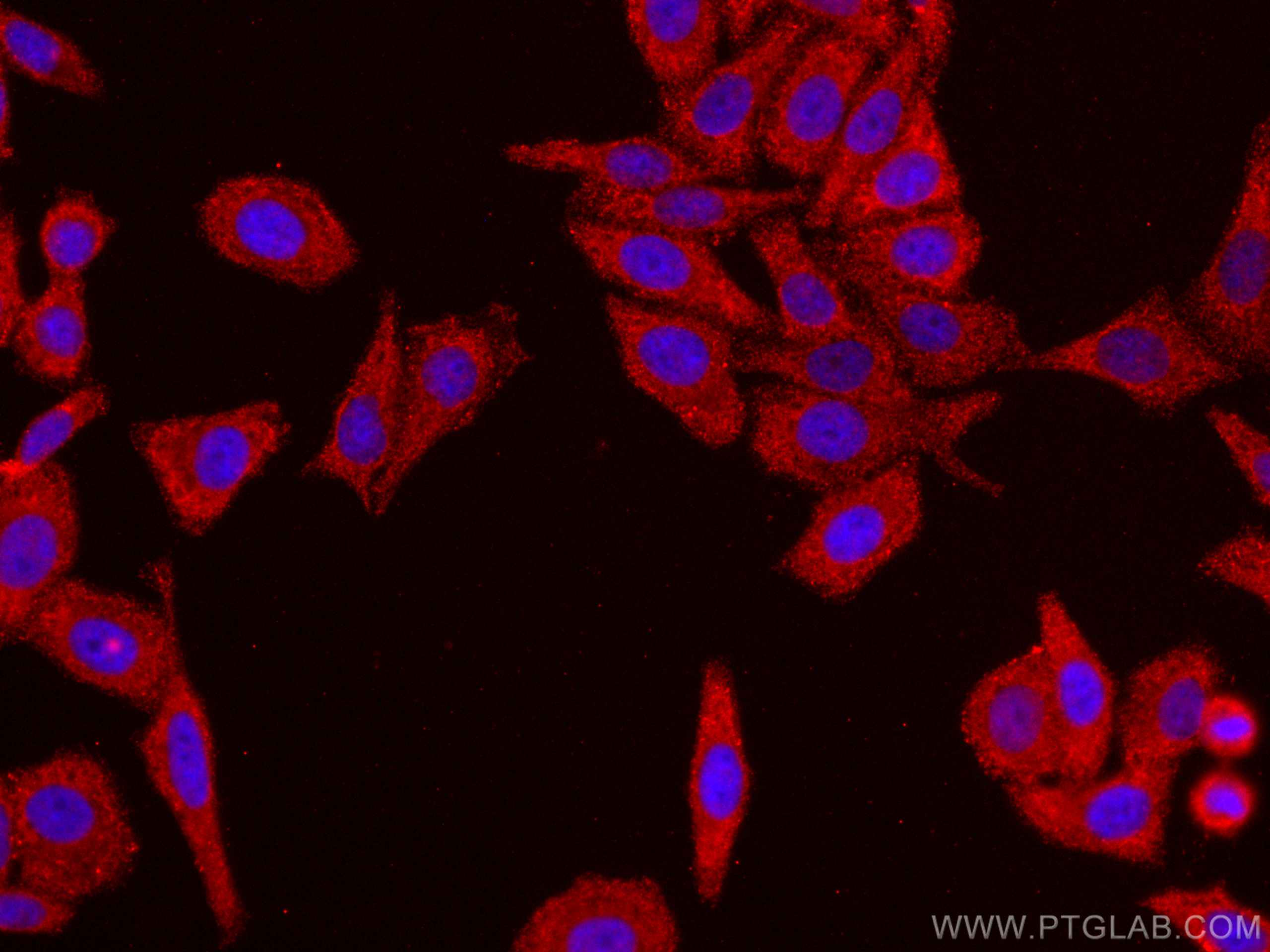- Phare
- Validé par KD/KO
Anticorps Monoclonal anti-FGFR3
FGFR3 Monoclonal Antibody for IF
Hôte / Isotype
Mouse / IgG1
Réactivité testée
Humain
Applications
IF
Conjugaison
CoraLite®594 Fluorescent Dye
CloneNo.
1F3G1
N° de cat : CL594-66954
Synonymes
Galerie de données de validation
Applications testées
| Résultats positifs en IF | cellules HepG2, |
Dilution recommandée
| Application | Dilution |
|---|---|
| Immunofluorescence (IF) | IF : 1:50-1:500 |
| It is recommended that this reagent should be titrated in each testing system to obtain optimal results. | |
| Sample-dependent, check data in validation data gallery | |
Informations sur le produit
CL594-66954 cible FGFR3 dans les applications de IF et montre une réactivité avec des échantillons Humain
| Réactivité | Humain |
| Hôte / Isotype | Mouse / IgG1 |
| Clonalité | Monoclonal |
| Type | Anticorps |
| Immunogène | FGFR3 Protéine recombinante Ag26290 |
| Nom complet | fibroblast growth factor receptor 3 |
| Masse moléculaire calculée | 87 kDa |
| Poids moléculaire observé | 125-135 kDa |
| Numéro d’acquisition GenBank | NM_000142 |
| Symbole du gène | FGFR3 |
| Identification du gène (NCBI) | 2261 |
| Conjugaison | CoraLite®594 Fluorescent Dye |
| Excitation/Emission maxima wavelengths | 588 nm / 604 nm |
| Forme | Liquide |
| Méthode de purification | Purification par protéine G |
| Tampon de stockage | PBS avec glycérol à 50 %, Proclin300 à 0,05 % et BSA à 0,5 %, pH 7,3. |
| Conditions de stockage | Stocker à -20 °C. Éviter toute exposition à la lumière. L'aliquotage n'est pas nécessaire pour le stockage à -20oC Les 20ul contiennent 0,1% de BSA. |
Informations générales
Fibroblast growth factors (FGFs) are polypeptide growth factors involved in a variety of activities including mitogenesis, angiogenesis, and wound healing (PMID: 1847508). The human FGF receptor family, a subfamily of receptor tyrosine kinases (RTKs), comprises of four family members-FGFR1, FGFR2, FGFR3 and FGFR4 (PMID: 23900974). Each receptor contains an extracellular domain with either two or three immunoglobulin-like domains, a transmembrane domain, and a cytoplasmic tyrosine kinase domain. FGFR3 binds acidic and basic fibroblast GH and plays a role in bone development and maintenance. Mutations in the FGFR3 gene lead to craniosynostosis and multiple types of skeletal dysplasia. Due to frequent mutations in certain cancers, FGFR3 gene has also been associated with tumor progression.
Protocole
| Product Specific Protocols | |
|---|---|
| IF protocol for CL594 FGFR3 antibody CL594-66954 | Download protocol |
| Standard Protocols | |
|---|---|
| Click here to view our Standard Protocols |


